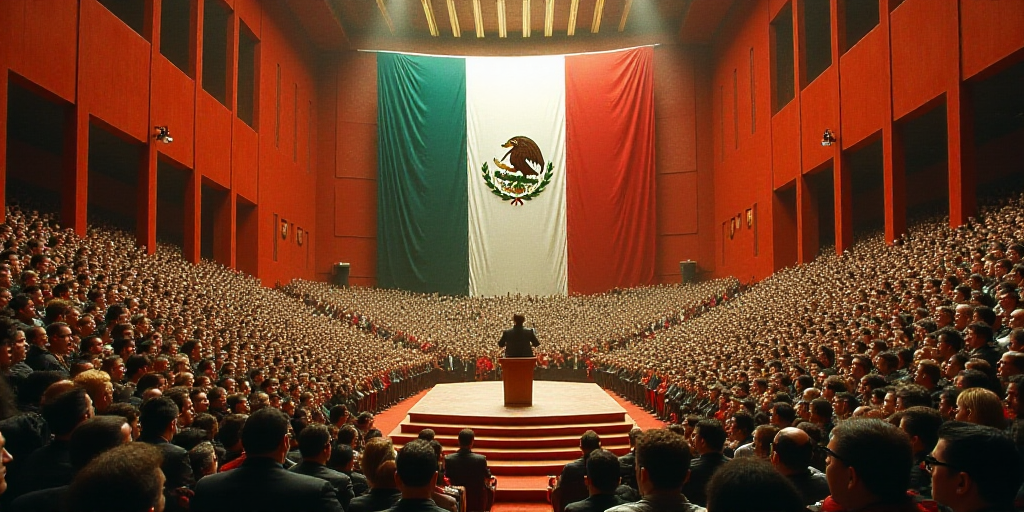Senators Approve Ban on Marine Mammal Shows
During the first day of extraordinary sessions, the Mexican Senate unanimously approved three decrees. These decrees reform the Laws on National Shield, Flag, and Anthem to recognize women who have transformed Mexico. Another decree modifies the General Customs Law for Import and Export to protect the totoaba, while a third decree amends the General Wildlife Law to prohibit fixed or itinerant shows featuring marine mammals and impose fines of up to 8.5 million pesos for non-compliance.
Regulations on Totoaba Trade
The decree amending the General Customs Law allows for the export of farmed totoaba meat in various forms, such as whole fish or fillets, provided there is an export permit. The export of live totoabas or their sonic bladder, as well as keeping them in captivity, remains prohibited.
The totoaba, native to the Gulf of California, is endangered. In 2013, the Mexican government estimated that the illegal totoaba trade generated around 220,000 million pesos annually, making it one of the most lucrative crimes globally, after drugs and arms trafficking. The totoaba is highly valued in Asian markets due to its purported medicinal properties.
Recognition of Women’s Contributions
Proposed by President Claudia Sheinbaum Pardo, the amendments to the Shield Law expand the national civic calendar to explicitly acknowledge 24 women who have significantly shaped Mexico’s history but remain largely unrecognized. These women include Tz’akbu Ajaw, the Red Queen; Señora Seis-mono, Mixtec governess; Sor Juana Inés de la Cruz, writer and poet; Gertrudis Bocanegra, Michoacan insurgent heroine; Josefa Ortiz Téllez Girón, informant and conspirator in Mexico’s independence; and Leona Vicario, journalist and financier of Mexico’s independence.
The amendment incorporates significant dates such as International Women’s Day (March 8), International Indigenous Women’s Day (September 5), and Day of Anonymous Republic Builders (September 14).
Diputados Concretize Coneval’s Extinction and Regulate Partial Withdrawals from Afore Accounts
The Chamber of Deputies concretized the extinction of the National Council for Evaluation of Social Development Policy (Coneval) to transfer its functions to the National Institute of Statistics and Geography (Inegi).
With 353 votes in favor and 126 against, the deputies approved an initiative by President Claudia Sheinbaum to reform various provisions of the Social Development General Law, Federal Budget and Fiscal Responsibility Law, and General Accounting Law for the Government to confirm Coneval’s elimination as part of the 2024 reform that abolished seven autonomous bodies and regulatory entities.
The bill now goes to the Senate for discussion. With Coneval’s functions transferred to Inegi, poverty measurement and social development policy evaluation will be the responsibility of the statistical body. Inegi must conduct poverty-related studies and investigations, consult with public, social, and private sectors on comprehensive evaluation themes and methodologies, analyze proposal feasibility, and establish mechanisms for comparable evaluation results.
Inegi will operate independently, objectively, transparently, and with technical rigor as the evaluator of social development policy and poverty measurement.
Candados: Regulations on Partial Withdrawals from Afore Accounts
With unanimous support, the Chamber of Deputies approved amendments to the Social Security Law to regulate partial withdrawals due to unemployment from Afore (Retirement Fund Administrators) accounts.
The bill, sent to the Senate for analysis, allows workers to withdraw from their individual accounts after three years and at least 12 bimesterly contributions, capping the withdrawal at thirty days’ base salary or ten times the monthly Unit of Measurement and Update (UMA) value.
If an individual account has been open for five years or more, the worker can withdraw the lesser of ninety days’ base cotization salary or 11.5% of the subaccount balance.
This initiative stems from detecting numerous workers fraudulently withdrawing with the help of apparent promoters and facilitators, who earn up to 30% of the unemployment insurance amount—approximately 10,000 pesos or a fixed prepaid amount.
Key Questions and Answers
- What is the purpose of the approved decrees? The decrees aim to protect the endangered totoaba, recognize women’s contributions to Mexico, and regulate poverty measurement and social development policy evaluation.
- What is the totoaba, and why is its trade regulated? The totoaba is a fish native to the Gulf of California, facing extinction due to illegal trade. Its high value in Asian markets, attributed to medicinal properties, led to lucrative yet harmful illegal trade.
- Which women are now recognized by the Mexican Congress? The Congress acknowledges 24 women, including Tz’akbu Ajaw, Señora Seis-mono, Sor Juana Inés de la Cruz, Gertrudis Bocanegra, Josefa Ortiz Téllez Girón, and Leona Vicario, for their significant roles in Mexico’s history.
- What changes have been made to Coneval and Afore accounts? Coneval has been abolished, transferring its functions to Inegi for poverty measurement and social development policy evaluation. Regulations on partial withdrawals from Afore accounts due to unemployment have been established.






